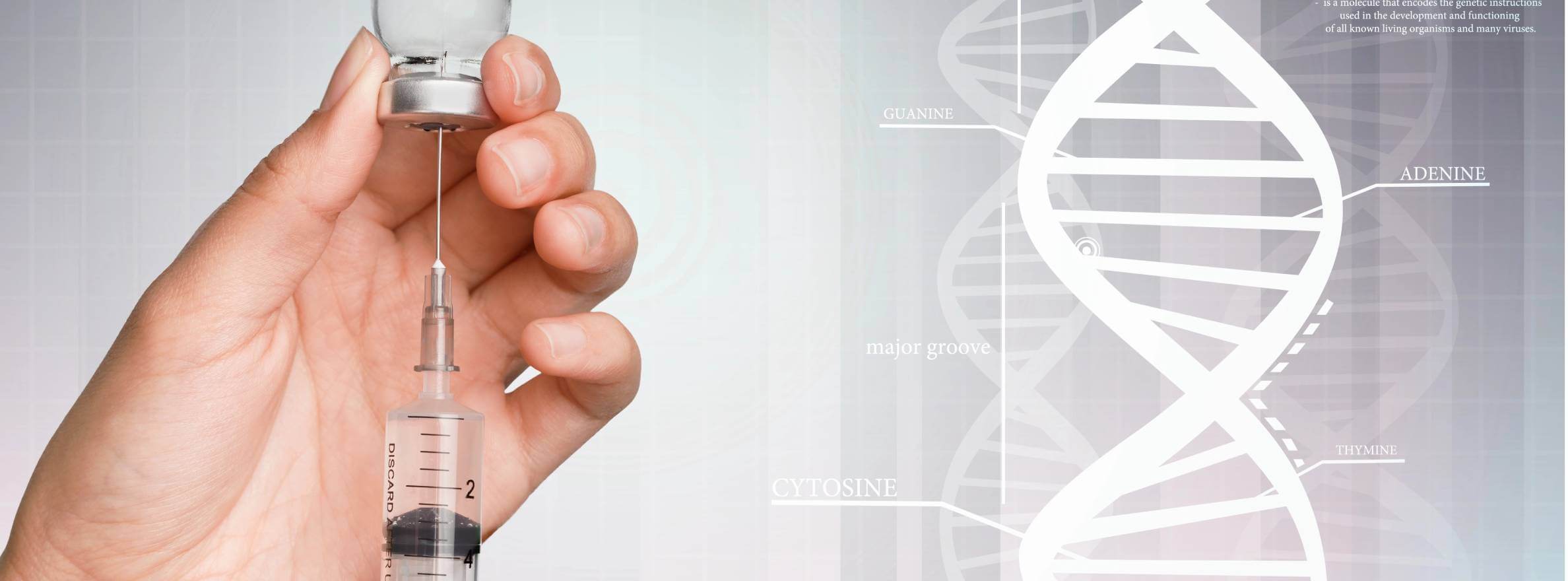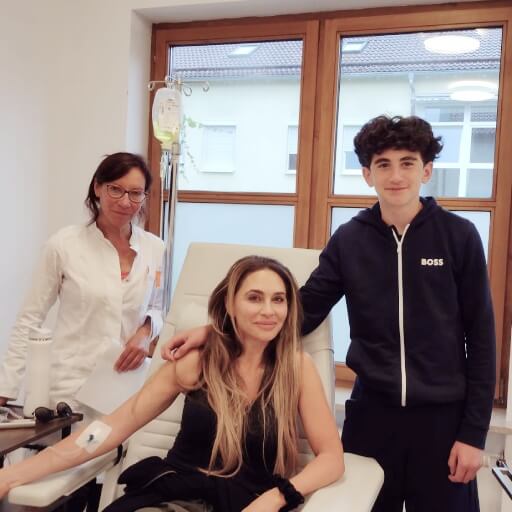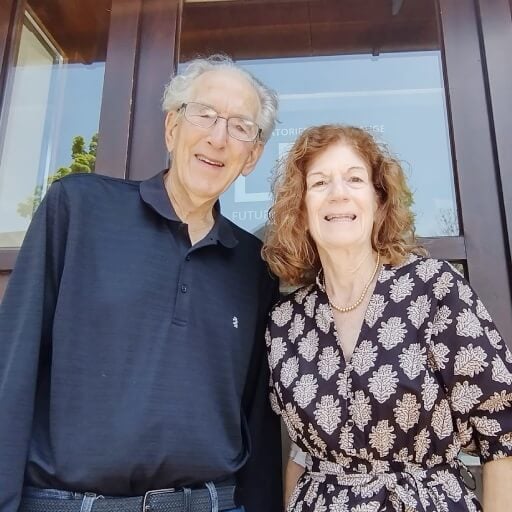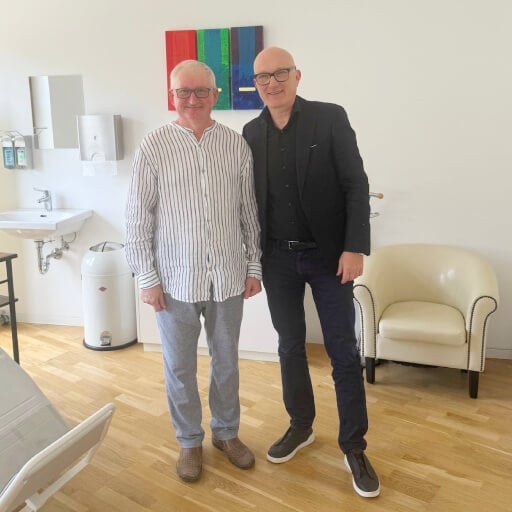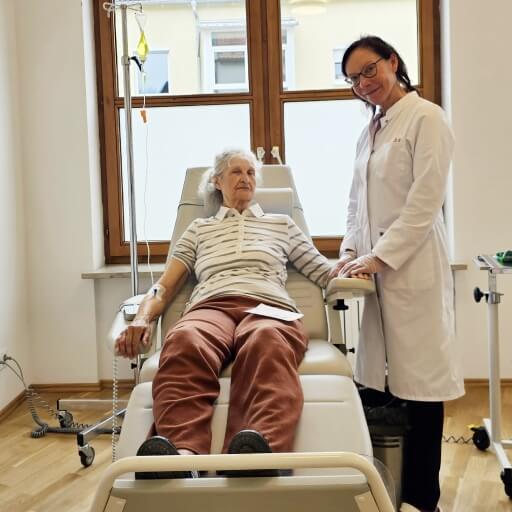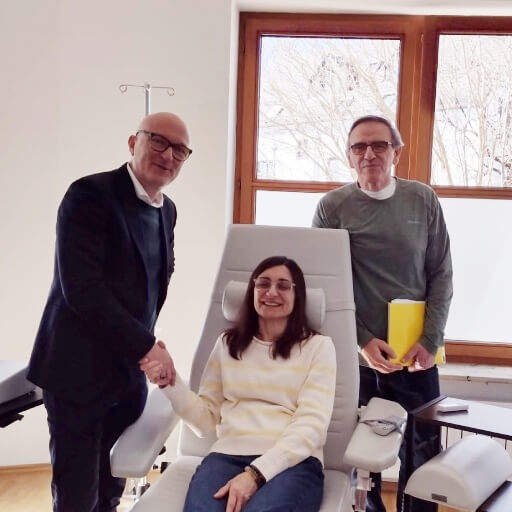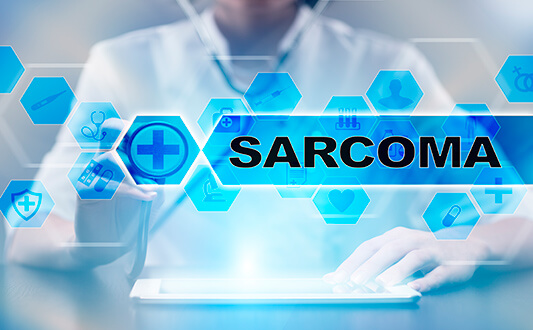Soft tissue sarcomas are rare malignant tumors that develop in muscles, fat, cartilage, blood vessels, and other non-epithelial tissues throughout the body. With approximately 13,520 new cases expected in the United States in 2025 [1], these cancers represent less than 1% of all cancer diagnoses [2].
While advanced sarcomas differ significantly from other cancers in their origin and behavior, treatment outcomes have steadily improved. Current five-year survival rates reach 66% overall, with localized cases achieving 83% survival rates [2]. For patients facing advanced stages or treatment-resistant disease, innovative approaches like personalized dendritic cell therapy offer new hope.
Dendritic cell therapy represents a breakthrough in cancer immunotherapy, earning recognition through the 2011 Nobel Prize [3]. This personalized treatment harnesses your body's own immune system, training it to recognize and attack sarcoma cells more effectively. Unlike traditional treatments, this approach can benefit sarcoma patients across all stages of disease, from early intervention to advanced cases where conventional options have been exhausted.
Begin Dendritic Cell Therapy for Sarcoma
Understanding Soft Tissue Sarcoma
Soft tissue sarcomas develop in the tissues that connect, support, and surround other body structures. Unlike more common cancers that start in organ linings, sarcomas grow from your muscles, fat, blood vessels, nerves, and the tissues that hold everything together. This explains why they can appear almost anywhere in your body and why they behave differently from other cancers.
Your extremities are where most sarcomas develop, with the thigh being the most common single location. While this might sound concerning, understanding where these tumors typically occur helps doctors detect them earlier and plan better treatments.
The three most common types you might encounter are [4]:
- Undifferentiated pleomorphic sarcoma: aggressive tumors that can develop in various tissues
- Liposarcoma: tumors that grow from fat cells, often in deeper tissues
- Leiomyosarcoma: cancers that develop from smooth muscle, commonly in the abdomen or limbs
What matters most for your prognosis is the tumor's grade, which describes how abnormal the cancer cells look and how quickly they're likely to grow and spread. High-grade sarcomas are more aggressive, while low-grade ones tend to grow more slowly. [5]
When to seek immediate medical evaluation:
- Any lump larger than a golf ball (5 centimeters)
- Masses that are growing or changing
- Deep-seated lumps you can't easily move
- Lumps causing pain or discomfort
Early detection significantly improves treatment outcomes, and most soft tissue lumps turn out to be benign. However, getting prompt evaluation gives you the best chance for successful treatment if cancer is present, and allows you to access specialized sarcoma centers where outcomes are consistently better.
What are dendritic cells, and how do they work against advanced soft tissue sarcoma?
Dendritic cells are antigen-presenting cells that serve as your body's immune system teachers. Think of them as highly trained detectives that patrol your tissues, constantly searching for anything that doesn't belong. Their job is to detect threats, capture them, analyze their "fingerprints," and then provide detailed information to T-cells about what to attack.
When dendritic cells encounter a foreign substance – whether it's a virus, bacteria, or cancer cell – they capture it, break it down into smaller pieces called antigens, and present these pieces to T-lymphocytes. Once T-cells receive these "instructions" from dendritic cells, they begin attacking the identified target throughout your body.
DC vaccination can be considered a kind of adoptive cell therapy. It influences T-cells naturally, while other methods like CAR T cells require direct T-cell modifications. Unlike CAR T cells, which are genetically engineered to express chimeric antigen receptors, dendritic cell therapy works by enhancing your body's natural antigen presentation process. This approach differs significantly from CAR T cell therapy, where T cells are directly modified in the laboratory before reinfusion. While CAR T cells have shown remarkable success in blood cancers, dendritic cell therapy offers a gentler, more natural approach. [6]
How Dendritic Cell Therapy Works Against Sarcoma
Dendritic cell therapy takes the natural process and supercharges it specifically against your cancer. Scientists collect your own dendritic cells from a blood sample, train them in the laboratory to recognize your sarcoma's unique characteristics, and then inject these educated cells back into your body. This creates a personalized vaccine that teaches your immune system to hunt down cancer cells with precision.
The sophisticated treatment process involves [7]:
- Antigen loading. Dendritic cells are exposed to your tumor's specific markers.
- Maturation enhancement. Cells develop stronger teaching capabilities through activation of co-stimulatory molecules like CD80, CD86, and CD40.
- Dual immune activation. Trained dendritic cells create both CD4+ helper T-cells for coordination and CD8+ killer T-cells for direct attack.
- Memory formation. Your immune system develops long-term recognition and surveillance capabilities.
Creating Targeted, Lasting Protection
The therapeutic advantage lies in creating both immediate and long-term immune responses. Unlike broad treatments that affect healthy cells, this approach generates targeted immunity that specifically recognizes your sarcoma while preserving normal tissue. Modern protocols can use whole tumor lysates containing a cancer's complete antigen spectrum, or focus on specific tumor markers based on your individual tumor characteristics and immune profile (these are detected during liquid biopsy), ensuring maximum treatment compatibility and effectiveness.
When can dendritic cells be used for advanced soft tissue sarcoma?
Treatment options for advanced sarcoma have improved, leading to higher survival rates and, as a result, increased life expectancy for many cancer patients. The standard treatment for soft tissue sarcoma is surgery, chemotherapy, and radiation therapy. In advanced stages, targeted therapy and immunotherapy with immune checkpoint inhibitors are used, which remove the "masking" of the tumor and prevent it from evading attacks by the immune system.
Dendritic cell therapy for soft tissue sarcoma is suitable for patients at various stages of the disease. This new treatment for soft tissue sarcoma involves collecting a patient's own cells, training them to recognize tumor antigens, and reintroducing them to stimulate an immune response. While research on these procedures is ongoing, results with dendritic cell vaccines show promise in multiple clinical scenarios:
- At early stages, after surgery, dendritic cell vaccines can reduce the risk of recurrence
- In intermediate stages, they can complement standard treatments to improve outcomes
- In patients with metastatic sarcoma, they help control tumor growth and the spread of metastases
- For treatment-resistant cases, they offer an alternative when other options have been exhausted
This is a systemic method of therapy that is effective even after the spread of distant metastases. Doctors use a personalized soft tissue sarcoma treatment option in the form of a vaccine, which is made for a specific patient. It represents several million autologous (the patient's own) dendritic cells treated with tumor antigens. Patients can also be offered soft tissue sarcoma therapy with hypothermia, hyperthermia (cooling and heating), angiogenesis inhibitors, and other methods.
What is the process of soft tissue sarcoma treatment with dendritic cells?
The dendritic cell therapy program for soft tissue sarcomas consists of two main visits separated by a careful preparation period. This streamlined approach makes the treatment accessible while ensuring maximum therapeutic benefit.
Your Treatment Journey: A Step-by-Step Process
Visit 1: Cell Collection (Day 1). Your treatment begins with a blood collection of approximately 150-200 ml – similar to a standard blood donation but slightly larger. This straightforward procedure takes about 30-45 minutes and provides the essential mononuclear cells needed to create your personalized dendritic cell vaccine.
Laboratory Processing (Days 1-7). Once collected, your cells undergo sophisticated processing in specialized laboratories:
- Cell isolation: Monocytes are separated using magnetic bead technology to ensure high purity
- Growth phase: Cells are cultured in serum-free medium with essential growth factors GM-CSF and IL-4
- Antigen loading: Dendritic cells are exposed to your individual tumor's specific antigens obtained through tumor tissue samples or liquid biopsy analysis of your cancer's unique characteristics
- Maturation process: A specialized cocktail containing TNF-α, IL-1β, IL-6, and prostaglandin E2 transforms immature cells into powerful immune educators
- Quality control: Advanced testing confirms proper cell maturation through surface marker analysis
Visit 2: Vaccine Administration (Day 8). After the 7-day preparation period, you return for vaccine administration. Up to 30 million mature dendritic cells can be produced from your initial blood collection. The vaccine is typically administered through intradermal injection, though some centers use ultrasound-guided lymph node injection for enhanced delivery directly to immune tissues.
Treatment Advantages
This outpatient procedure requires no hospital stay and causes minimal side effects. The single treatment creates lifelong immune memory against your cancer cells, with ongoing surveillance and destruction of tumor cells and metastases. Some protocols utilize multiple injection sites to maximize immune system exposure and create comprehensive systemic immunity rather than localized responses.
| What You Want to Know | Dendritic Cell Therapy Details |
|---|---|
| How it works | Uses your own immune cells, which are collected, trained to recognize cancer, and reinjected to activate your immune system against soft tissue sarcoma |
| Success rates | Up to 95% for early stages |
| Treatment duration | One-time procedure (single treatment, not ongoing) |
| Recovery | Outpatient procedure, no hospital stay required |
| Side effects | Minimal; typically only injection site pain and swollen lymph nodes |
| Key benefits |
|
| Cost |
|
Leading Specialists Share Their Experience With Dendritic Cell Therapy for Soft Tissue Sarcoma
Leading experts in cancer immunotherapy emphasize that dendritic cell therapy represents a paradigm shift from traditional cancer therapy. According to Prof. Frank Gansauge, who has pioneered this approach for over two decades at LDG Laboratories in Germany, the therapy's foundation lies in understanding how the immune response naturally arises.
"I like to call these effector cells 'soldiers' and dendritic cells 'officers', who recognize pathological cells, understand what they are dealing with, and then pass this information on to cells that perform their task," Prof. Gansauge explains. This military analogy helps patients understand how dendritic cells coordinate targeted immune responses against their specific cancer.
Clinical Evidence and Real-World Outcomes
Prof. Gansauge's extensive clinical experience demonstrates measurable effectiveness rates of 50-65% across various cancer types. "Already after three months, a doctor can see whether the patient's condition has improved or not using diagnostic tests such as magnetic resonance imaging or computed tomography," he notes. Treatment responses are categorized into clear outcomes: complete tumor disappearance, tumor regression, and stable disease.
Particularly encouraging are the complete response cases Prof. Gansauge has documented. "We had cases where patients achieved complete recovery from cancer with no recurrence after 5 years," he reports. These outcomes represent the ultimate goal of any cancer therapy – long-term survival without disease.
Safety and Regulatory Standards
German medical regulations ensure the highest manufacturing standards under oversight from the European Medicines Evaluation Agency and the Paul Ehrlich Institute. "Dendritic cell therapy causes practically no side effects," Prof. Gansauge emphasizes, drawing from his extensive clinical database. The regulatory framework provides patients with confidence that they receive state-controlled, high-quality treatment.
Prof. Gansauge strongly advises patients to verify regulatory approval when considering dendritic cell therapy: "The first thing to do is find out if the clinic has permission to manufacture a vaccine. This will help patients separate the wheat from the chaff."
For deeper insights into the scientific foundations and clinical applications of this therapy, you can explore the complete interview "INNOVATIVE DENDRITIC CELL TREATMENT IN GERMANY" with Professor Frank Gansauge.
Expert Insights from Prof. Gansauge: The Science Behind Dendritic Cells
Soft Tissue Sarcoma Treatment Options Comparison: Innovative vs. Conventional Approaches
When facing a soft tissue sarcoma diagnosis, you have multiple treatment pathways available. Different approaches target cancer cells differently – surgery physically removes tumors, chemotherapy uses drugs to kill cancer cells throughout your body, radiation destroys cancer cells with focused energy beams, and dendritic cell therapy trains your immune system to recognize and attack your specific cancer. Understanding how these treatments differ in their mechanisms, side effects, and outcomes empowers you to participate actively in treatment decisions alongside your medical team.
| Treatment Aspect | Dendritic Cell Therapy | Surgical Resection | Chemotherapy | Radiation Therapy |
|---|---|---|---|---|
| Primary Mechanism | Immune response activation against tumor cells’ antigens | Complete physical tumor removal | Systemic cancer cell destruction | Localized DNA damage to cancer cells |
| Treatment Duration | Single week-long process | One surgical procedure | 3-6 months of cycles | 5-7 weeks daily sessions |
| Hospitalization | None required | 3-10 days typical | Outpatient or short stays | Outpatient daily visits |
| Common Side Effects | Injection site swelling, mild fever | Wound complications, infection risk | Nausea, neutropenia, fatigue | Skin burns, tissue fibrosis |
| Functional Impact | Preserves all normal function | May affect limb/organ function | Temporary systemic effects | Local tissue changes |
| Effectiveness by Stage | Beneficial across all stages due to a robust immune response | Most effective for localized disease | Variable by sarcoma subtype | Best for high-grade, localized tumors |
| Recurrence Prevention | Long-term immune response | Depends on margin status | Limited preventive effect | Reduces local recurrence risk |
| Recovery Period | Immediate return to activities | Weeks to months rehabilitation | Gradual recovery between cycles | Progressive fatigue during treatment |
This analysis provides educational context for treatment discussions. Individual treatment recommendations require comprehensive evaluation by soft tissue sarcoma specialists familiar with your specific case.
A Medical Journey: Every Step of the Way With Booking Health
Finding the best treatment strategy for your clinical situation is a challenging task. Being already exhausted from multiple treatment sessions, having consulted numerous specialists, and having tried various therapeutic interventions, you may be lost in all the information given by the doctors. In such a situation, it is easy to choose a first-hand option or to follow standardized therapeutic protocols with a long list of adverse effects instead of selecting highly specialized innovative treatment options.
To make an informed choice and get a personalized cancer management plan, which will be tailored to your specific clinical situation, consult medical experts at Booking Health. Being at the forefront of offering the latest medical innovations for already 12 years, Booking Health possesses solid expertise in creating complex cancer management programs in each individual case. As a reputable company, Booking Health offers personalized soft tissue sarcoma treatment plans with direct clinic booking and full support at every stage, from organizational processes to assistance during treatment. We provide:
- Assessment and analysis of medical reports
- Development of the medical care program
- Selection of a suitable treatment location
- Preparation of medical documents and forwarding to a suitable clinic
- Preparatory consultations with clinicians for the development of medical care programs
- Expert advice during the hospital stay
- Follow-up care after the patient returns to their native country after completing the medical care program
- Taking care of formalities as part of the preparation for the medical care program
- Coordination and organization of the patient's stay in a foreign country
- Assistance with visas and tickets
- A personal coordinator and interpreter with 24/7 support
- Transparent budgeting with no hidden costs
Health is an invaluable aspect of our lives. Delegating management of something so fragile yet precious should be done only to experts with proven experience and a reputation. Booking Health is a trustworthy partner who assists you on the way of pursuing stronger health and a better quality of life. Contact our medical consultant to learn more about the possibilities of personalized treatment with innovative methods for metastatic sarcoma with leading specialists in this field.
Dendritic Cell Therapy: Patient Stories with Booking Health
Frequently asked questions about soft tissue sarcoma treatment with dendritic cells
Begin Dendritic Cell Therapy for SarcomaDendritic cell therapy shows promise for patients with both early and advanced soft tissue sarcoma. Some patients can expect complete tumor cells disappearance after treatment.
Side effects are minimal, typically limited to injection site pain and swollen lymph nodes. Treatment is outpatient with no hospital stay required and severe complications are rare. Unlike some other immunotherapies, dendritic cell therapy has a low risk of triggering autoimmune disease.
Only specialized centers in developed countries offer this therapy. Booking Health can connect you with suitable German hospitals and arrange all aspects of your medical travel.
Yes, dendritic cell therapy can complement standard treatments. As an immunotherapy, it works differently by enhancing your body's natural cancer-fighting immune response. Your oncologist can create a personalized plan combining multiple approaches.
Soft tissue sarcoma is a rare cancer developing in muscles, fat, cartilage, and blood vessels. Dendritic cell therapy uses your own immune cells, trained in the lab to recognize your tumor's unique characteristics, then reinjected to activate targeted immune responses against cancer cells.
This immunotherapy for sarcoma collects your dendritic cells via blood draw, exposes them to your tumor's antigens in the laboratory, and then reintroduces these educated cells to teach your T-lymphocytes to hunt down cancer cells throughout your body.
Yes, this antigen-specific therapy shows effectiveness across all stages. For metastatic sarcoma treatment, it provides systemic immune stimulation that can control tumor growth and spread even after distant metastases have developed, offering hope when conventional options are exhausted.
Patient eligibility criteria include various disease stages – from early post-surgery cases to treatment-resistant cancer scenarios. The therapy benefits patients with recurrent sarcoma and those seeking cancer cell targeting when other treatments have failed or need enhancement.
Absolutely. Multimodal therapy approaches work well because dendritic cell therapy operates differently from conventional treatments. Integrated cancer care plans can include immunotherapy combination with surgery, chemotherapy, or radiation for enhanced effectiveness and comprehensive treatment coverage.
Benefits include immune activation against your specific cancer, minimal side effects, a single treatment creating long-lasting immunity, tumor regression in many cases, preserved normal function, and improved patient quality of life compared to traditional therapies with their harsh side effects.
Treatment cost Germany offers ranges from €20,000-€38,000, significantly lower than the price of dendritic cell therapy in the USA ($100,000-$150,000). Medical travel costs are often offset by the price difference and comprehensive care quality available in German specialized centers.
Booking Health support provides complete medical arrangement services for international patients, including medical report analysis, clinic selection, document preparation, visa assistance, interpreters, and 24/7 coordination throughout your treatment journey in Germany.
Dendritic cell therapy activates the immune response against tumor antigens. Surgical excision removes the tumor physically, chemotherapy kills cancer cells systemically and radiation therapy damages the tumor’s DNA locally.
Dendritic cell therapy lasts about a week. Surgery is a one-time procedure, chemotherapy is given in courses over 3–6 months and radiation therapy requires daily sessions for 5–7 weeks.
Dendritic cell therapy does not require hospitalization, surgery requires a 3-10 day hospital stay, chemotherapy is usually done on an outpatient basis, and radiation therapy is done during daily clinic visits.
After dendritic cell therapy mild redness or fever may occur. Surgery can cause infections, chemotherapy can cause nausea and fatigue and radiation can cause skin burns and tissue fibrosis.
Dendritic cell therapy preserves organ function. After surgery there may be some limitation of movement, chemotherapy causes temporary weakness and radiation therapy can cause local tissue changes.
Dendritic cell therapy is effective at all stages because it activates the immune system. Surgery works best for localized tumors, chemotherapy works best depending on the subtype of sarcoma and radiation therapy works best for high-grade tumors.
Dendritic cell therapy creates long-term immune memory and prevents recurrence. Surgery depends on clean resection margins, chemotherapy has limited preventive effects and radiation therapy reduces the risk of local tumor recurrence.
After dendritic cell therapy, the patient can return to activity immediately. Rehabilitation after surgery takes weeks or months, recovery is gradual with chemotherapy and fatigue often occurs after radiation therapy.
In Germany soft tissue sarcoma patients receive dendritic cell therapy only after detailed assessment. Treatments are individualized and administered in specialized centers under close supervision. Also dendritic cells are combined with standard oncology care to enhance immune response.
Choose treatment abroad and you will for sure get the best results!
Authors:
This article was edited by medical experts, board-certified doctors Dr. Nadezhda Ivanisova, and Dr. Bohdan Mykhalniuk. For the treatment of the conditions referred to in the article, you must consult a doctor; the information in the article is not intended for self-medication!
Our editorial policy, which details our commitment to accuracy and transparency, is available here. Click this link to review our policies.
Sources:
[1] American Cancer Society. Key Statistics for Soft Tissue Sarcomas. https://www.cancer.org/cancer/types/soft-tissue-sarcoma/about/key-statistics.html
[2] NIH, National Cancer Institute. Cancer Stat Facts: Soft Tissue including Heart Cancer. https://seer.cancer.gov/statfacts/html/soft.html
[3] Roman Volchenkov, Florian Sprater, Petra Vogelsang, Silke Appel. The 2011 Nobel Prize in physiology or medicine. Scand J Immunol. 2012 Jan;75(1):1-4. doi: 10.1111/j.1365-3083.2011.02663.x. [DOI] [PubMed]
[4] Domagoj Ante Vodanovich, Peter F M Choong. Soft-tissue Sarcomas. Indian J Orthop. 2018 Jan-Feb;52(1):35–44. doi: 10.4103/ortho.IJOrtho_220_17. [DOI] [PMC free article]
[5] NIH, National Library of Medicine. John R. Popovich; Sarang Kashyap; David P. Gasalberti; Sebastiano Cassaro. Sarcoma. https://www.ncbi.nlm.nih.gov/books/NBK519533/
[6] NIH, National Cancer Institute. T-cell Transfer Therapy. https://www.cancer.gov/about-cancer/treatment/types/immunotherapy/t-cell-transfer-therapy
[7] Robbie B Mailliard, Shinichi Egawa, Quan Cai, Anna Kalinska et al. Complementary dendritic cell-activating function of CD8+ and CD4+ T cells: helper role of CD8+ T cells in the development of T helper type 1 responses. J Exp Med. 2002 Feb 18;195(4):473-83. doi: 10.1084/jem.20011662. [DOI] [PubMed]
Read:
Immunotherapy for Cancer Treatment
Article menu:
- Understanding Soft Tissue Sarcoma
- What are dendritic cells, and how do they work against advanced soft tissue sarcoma?
- When can dendritic cells be used for advanced soft tissue sarcoma?
- What is the process of soft tissue sarcoma treatment with dendritic cells?
- Leading Specialists Share Their Experience With Dendritic Cell Therapy for Soft Tissue Sarcoma
- A Medical Journey: Every Step of the Way With Booking Health
- Frequently asked questions about soft tissue sarcoma treatment with dendritic cells
Don't know where to start?
Contact Booking Health